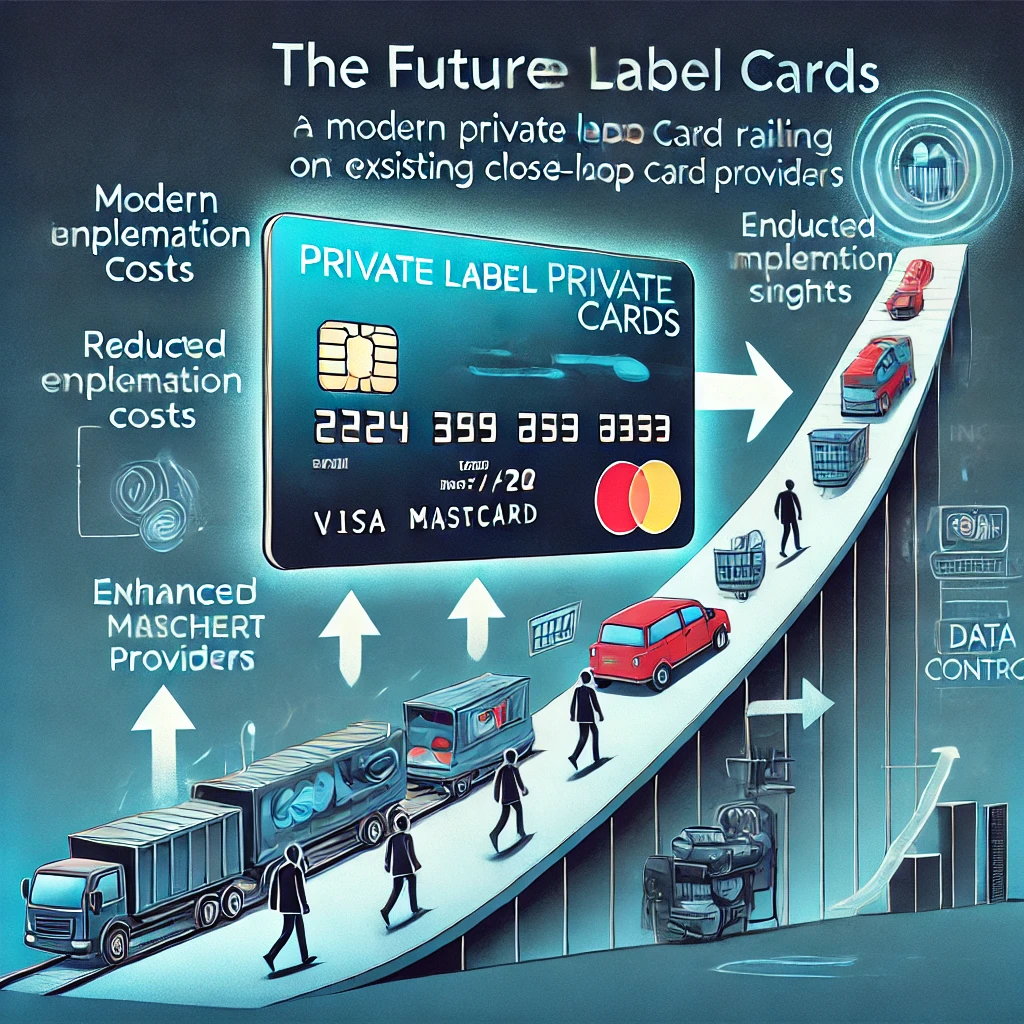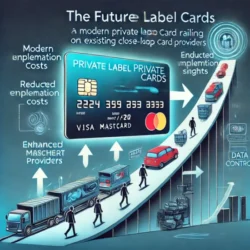
Private label cards are no longer confined to traditional closed-loop systems. By leveraging existing scheme rails, they significantly reduce the cost of implementation while maintaining the advantages of retailer-controlled payment solutions. This shift enables retailers to sidestep legacy closed-loop infrastructure, making private label cards more scalable and accessible. As a result, they are directly challenging traditional closed-loop providers and redefining how merchants engage with customers through proprietary payment solutions.
How Private Label Cards Work: A Deep Dive into Their Growing Popularity
In today’s competitive retail and e-commerce landscape, businesses are continuously seeking innovative ways to drive customer loyalty and boost revenue. One such tool that has gained significant traction is the private label card. These cards, often issued by retailers, offer customers exclusive benefits while providing businesses with greater control over their payment ecosystem. But how exactly do private label cards work, and why are they becoming increasingly popular?
What is a Private Label Card?
A private label card is a store-branded credit card that can only be used within a specific retailer’s network. Unlike traditional credit cards that operate on open-loop networks such as Visa, Mastercard, or Amex, private label cards function on a closed-loop system, meaning transactions are restricted to a particular brand or group of affiliated merchants.
These cards can come in different forms:
- Charge Cards – Requiring full payment at the end of each billing cycle.
- Revolving Credit Cards – Allowing customers to carry a balance and pay interest over time.
- Prepaid or Stored Value Cards – Preloaded with funds that can be used until depleted.
How Do Private Label Cards Work?
- Issuance – Retailers typically partner with financial institutions or fintech providers to issue private label cards. Some large merchants may also run their own card programs through in-house financing.
- Customer Enrollment – Shoppers can apply for the card at the point of sale, online, or via mobile apps, often with minimal approval requirements compared to general-purpose credit cards.
- Usage & Benefits – Once approved, cardholders can use their private label cards exclusively at the retailer’s stores (physical or digital) to make purchases and enjoy benefits such as discounts, rewards, or deferred payment options.
- Billing & Payments – The retailer or financial partner manages the billing, collects payments, and may charge interest on revolving balances.
- Data Insights & Customer Engagement – Retailers gain valuable transaction data that helps them tailor promotions, refine loyalty programs, and drive repeat purchases.
Why Are Private Label Cards Gaining Popularity?
- Stronger Customer Loyalty – By offering special financing options, rewards, and discounts, businesses can encourage repeat purchases and deeper engagement.
- Higher Spend per Customer – Studies show that customers using private label cards tend to spend more than those using regular credit or debit cards.
- Better Margins for Retailers – Since private label cards operate without traditional card network fees, merchants save on interchange costs while also earning interest revenue from credit balances.
- Enhanced Customer Insights – Unlike traditional bank-issued cards, retailers get full access to customer purchasing behaviors, allowing them to craft personalized offers.
- Alternative to Traditional Credit – Private label cards often have more flexible approval criteria, making them accessible to a broader range of consumers, including those with limited credit history.
- Disrupting Traditional Closed-Loop Providers – Private label cards are now leveraging existing scheme rails, reducing the cost of implementation and making them more scalable compared to traditional closed-loop card providers. This shift enables retailers to sidestep legacy closed-loop infrastructure while still maintaining brand control and customer engagement, effectively challenging traditional closed-loop providers in the market.
Key Players in the Private Label Card Space (APAC Region)
Several key players in the Asia-Pacific region are driving the adoption of private label cards:
- AEON Credit Service (Japan, Malaysia, Hong Kong, Thailand, and Indonesia) – Offers private label and co-branded credit cards, focusing on retail, consumer finance, and installment plans.
- HDFC Bank (India) – Partners with leading retail brands to offer store-branded private label credit cards with loyalty benefits.
- Bank Central Asia (BCA) (Indonesia) – Provides private label and installment-based card solutions for local retailers.
- UnionPay (China & Southeast Asia) – Supports private label card issuance in partnership with domestic banks and retailers.
- CIMB Bank (Malaysia, Singapore, Thailand, Indonesia, and the Philippines) – Works with retailers to develop private label financing and payment solutions.
- JCB (Japan & APAC markets) – A dominant payment network that enables private label solutions for regional merchants.
Challenges & Considerations
While private label cards offer numerous benefits, retailers must also consider:
- Credit Risk – Managing delinquencies and defaults can be challenging if customers fail to repay their balances.
- Limited Acceptance – Since these cards are restricted to specific merchants, they may not be as appealing as general-purpose credit cards.
- Regulatory Compliance – Financial institutions and retailers must adhere to local lending and data privacy laws when operating private label programs.
The Future of Private Label Cards
As embedded finance and loyalty-driven payments evolve, private label cards are likely to become even more sophisticated. Innovations such as Buy Now, Pay Later (BNPL) integrations, digital wallets, and AI-driven personalized offers will further enhance their appeal. For businesses looking to deepen customer relationships while maintaining control over their payment flows, private label cards remain a powerful tool.
